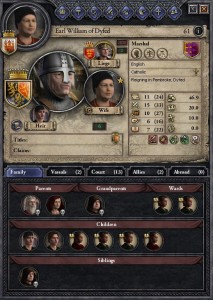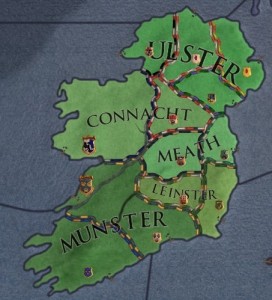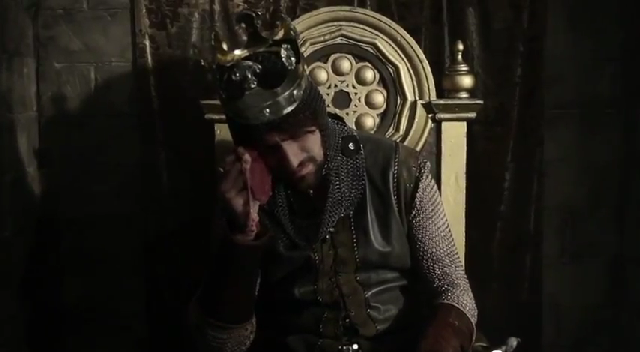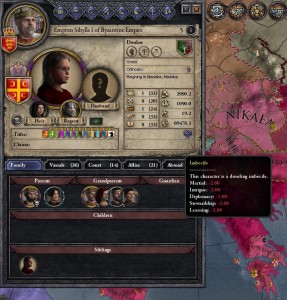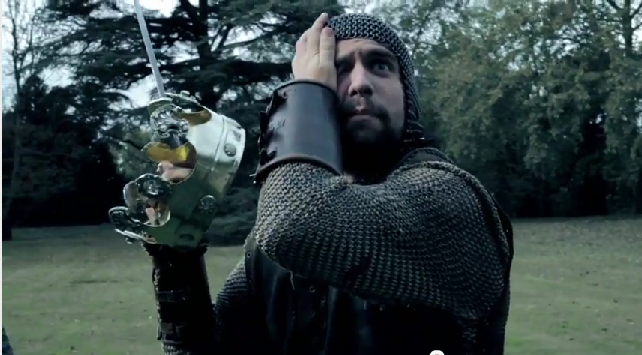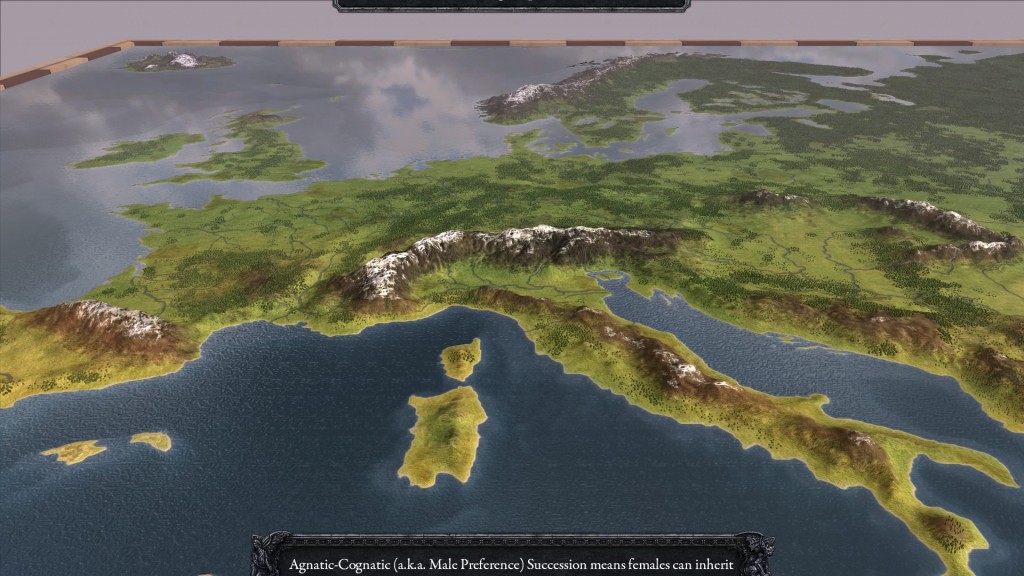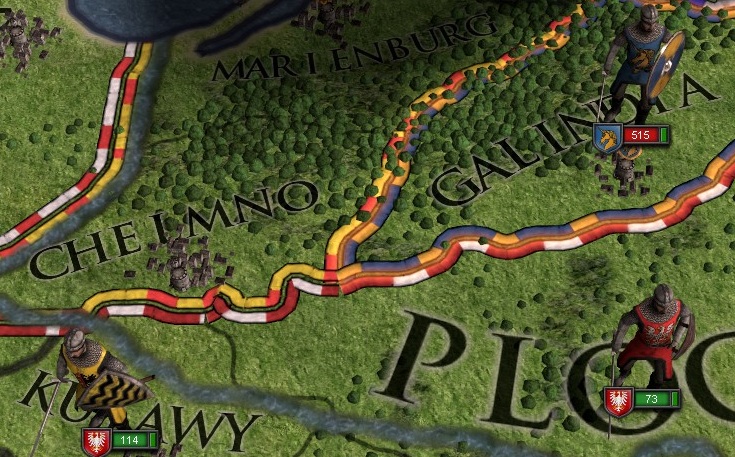History is good. Games are good. Vivid, memorable characters are good. Could a historical game packed with vivid, memorable characters, Paradox’s Crusader Kings II, be best of all? In the following guest post, the first of a series, Rachel McFadden (aka frogbeastegg) sets out to answer this.
Note: the following comments are based on a review copy supplied by the game’s developer, Paradox Interactive.
***
My first hour with a new PC game follows a time-honoured pattern. I read the manual whilst the game installs. In the days of 20GB installs and pamphlet manuals, I usually need to add a chapter of my current book to fill the downtime. Next, I dutifully check for patches. When the game’s finally ready to launch, I do so and watch any opening cinematics. After that, I fiddle with the options screens. If there’s a tutorial, I’ll go there next, whether it looks useful or not. Only after all of this rigmarole do I settle down with a cup of tea to start playing the game proper.
Boring! Traditional. Traditionally boring?
In Crusader Kings II, I spent my first hour running around the game set-up screen whilst my inner history geek squealed with joy.
It all began innocently enough. I scouted around the map a little, looking at the various kings and independent rulers in the ‘William the Conqueror 1066’ scenario. After locating most of the famous names from the period and chuckling at their portraits, I started to look at their vassals. Sure enough, I spotted the obvious names. There’s this king’s brother, here’s that duke’s nephew, there’s that famous daughter, and oh my gosh that’s pseudo-saint Waltheof of Huntingdon prior to his little mishap with a headsman’s axe! Selecting the vassals meant I could see their courts, and another round of name-spotting swept across Europe. Then I did the same thing with the other bookmarks.
Having exhausted the scenarios, I looked speculatively at a certain control which is in most Paradox games, one I’ve seldom found useful as it mainly makes minor changes to national borders. I cautiously clicked on a button. I grinned. Ladies and gentlemen, CKII features a fully functional time machine!
The scenarios act as bookmarks that store specific dates. Using the time machine you can choose your own starting date, right down to the very day. It turns out that CKII has historical data for the entire time range, not just the specified starting points. As you play with the dates the world shifts and changes – characters age or grow younger before your eyes, titles rise and fall, and all sorts of extra historical personages appear onto the scene. Start in 1066 with William the Conqueror and move forward, there’s William II, forward, Henry I, forward, Stephen I, forward, Henry II – the line will continue in historically correct form up to the latest date the game supports, January 1st 1337. It’s not only the English royal line that does this. Every single title on the map will do the same, from the mightiest of Sultans to the most minor of counts. Their vassals and courts will likewise update.
Needless to say, I spent another half hour with this new toy.
With the discovery of the time machine, I pushed the game to what I expected to be its limit. I went in search of my favourite historical personage. First I located King John of England, then worked through his vassals until I found a certain Countess Isabelle, an heiress with huge tracts of land. Selecting her I scanned through her court and … yes, there he was, the husband who derived most of his landed status through her. William Marshal, aka The Greatest Knight. An old man with a bevy of historically accurate children, still wearing his armour with pride.
At this point my inner medievalist had a meltdown. William Marshal is in the game and playable! If ever there was an occasion where the internetism “ZOMG!!” applies, surely this is it.
When you start a campaign, there’s more detail available on the historical characters. You can see the traits they have been assigned by developers and grumble that so-and-so wasn’t that, or nod approvingly because it’s plainly apparent that what’s-his-face was a this. And then I noticed the range of ancestors. Yes, this means you can go on a paper chase to locate personages of the non-landholder variety, including a vast array of female characters.
Might I humbly suggest Paradox start working on a Pokemon-esque sub-game centred around locating historical people in CKII? I’d buy that as £1.59 DLC, especially if I can train my Anna Comnena to breathe fire and shoot ice beams from her fingertips, or make Frederick Barbarossa hurl lightning.
Rachel McFadden (aka frogbeastegg) has been gaming since she discovered the original Prince of Persia on the IBM 286sx PC. Whilst strategy and RPGs are her preferred genres, she is a multiplatform gamer who will play almost anything provided it isn’t sport, car racing, or multiplayer only. Under the frogbeastegg name Rachel has written guides for many of the Total War series, various AARs for strategy games, and a few pieces of fiction. When not engaged in reminding various virtual populaces that she is in fact the Supreme Ruler of the Universe and the One True Hero, Rachel can typically be found with her nose in a book.

